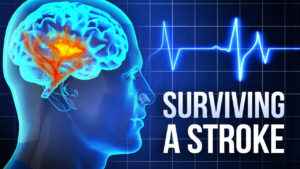HARLINGEN — Strike first, strike hard, no mercy on stroke.
That’s what physicians around the world are telling people Friday as part of World Stroke Day, said Dr. Ameer Hassan, head of the neuroscience department at Valley Baptist Medical Center.
“Stroke is still the number two killer in the world, number five killer in the United States,” Hassan said. “People are still showing up too late for treatment.”
Time is crucial when having stroke. Those first few minutes can make the difference between permanent paralysis and full recovery. During the past year, many stroke patients resisted hospitalization for fear of contracting COVID-19, even though extensive protocols were put in place to prevent that occurrence.
At the first sign of stroke, people need to get to the hospital.
“Two million neurons are lost in a stroke every minute,” Hassan said.
He gave these sobering statistics.
“Every 40 seconds someone suffers a stroke,” he said. “One in four people over the age of 25 will have a stroke in their lifetime. It’s 72 million people around the world have a stroke every year, and 5 ½ million die of a stroke every year.”
Stroke is especially prevalent in the Rio Grande Valley because of the high rate of diabetes.
“We have double the rate of diabetes compared to the rest of the United States,” he said. “If you add hypertension, diabetes and obesity into the mix, you will significantly increase your risk for stroke.”
The best way to attack stroke from that end is to control sugar intake, exercise, cut red meat and pork from your diet, and eat more fruits and vegetables. People should exercise at least 30 minutes a day six to seven days a week.




